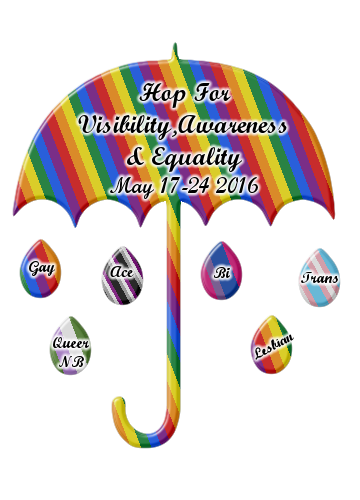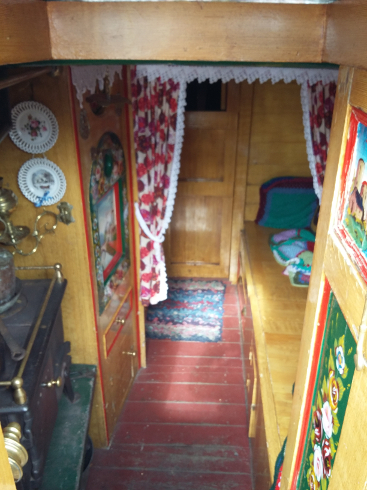
Recently, while researching for a planned novel set during WW2, I was reading the memoir ‘Troubled Waters’ by Margaret Cornish, about her wartime experience on the inland waterways. I’d been reading quite a few books like this as initial prep for this story, and one thing which had stuck out thus far was that, if the somewhat isolated community of boaters were at all aware of the existence of LGBTQ+ people, it was certainly not something they would discuss or record as part of their history. In Troubled Waters, however, I almost jumped for joy when I came across the following, which occurs shortly after Jo joins the author and skipper Daphne aboard the training boats:
When I returned to the boats, I could hear Jo in the cabin of Cleopatra and I almost turned back into the pub. But money was short and it was cold and I was tired. I entered noisily. Jo was lying along the side-bed with her head on Daphne’s lap. I felt embarrassed; Daphne looked embarrassed, but Jo remained imperturbable and stayed where she was. […] Was Jo a lesbian? Were they both lesbians? I wondered as I drifted into sleep.
The reason I jumped for joy was not only finding reference (at last!) to the existence of LGBTQ+ people in this time period, but also that it suggests I should be ok using the word “lesbian” in my own story. As my editor could tell you, I have terrible trouble with weeding out anachronisms…

Looking down into a narrowboat cabin: the side-bed is the bench you can see on the right
A few pages later, however, I wasn’t feeling quite so joyful. In the midst of a series of increasingly disturbing events where Jo’s moods swing wildly from one extreme to another, and her behaviour becomes more erratic, the author (Margaret) sustains an injury to her leg while manoeuvring the boats through a lock. The injury effectively confines her to the cabin where she cannot escape Jo, and on one occasion during a pause while they wait for their cargo to be offloaded, Margaret remains on the boats to write letters while the others go off into town for a few hours. Jo returns earlier than expected.
‘Never get to see you on your own,’ she said closing the cabin doors behind her.
I panicked as she joined me on the side-bed and embraced me fiercely, trying to kiss me. She told me that, in fact, she was a man and that she loved me – had loved me since she had lifted me up on the lockside [..] I was horrified and not a little frightened. My arms were pinioned and my leg hurt.
This particular passage struck me and I put the book down at this point on my first read-through. I understood the fright felt by Margaret – she was injured, and therefore in a very vulnerable position, even more so when you’ve read more than just these small extracts and know that even before her injury, Margaret was not as physically imposing or strong as Jo; and Jo, as has been made clear several times by this point in the text, has a very forceful personality. The consequences when she doesn’t get her own way have been shown to be disproportionately dire.
But “horrified”? That one threw me out of my modern understanding and viewpoint. I had to think back, remind myself how little was known about trans issues even 10 years ago, when the Gender Recognition Act had been in place in the UK for a year, or 20 years ago, when I was a teenager struggling to understand sexuality and gender. On reflection, I shouldn’t be surprised at someone in a vulnerable situation being “horrified” by their understanding of gender possibly being turned upside down.
Of course, Jo may not have been trans at all. Even had she known the term, she may not have chosen it for herself. That is me, again, with my modern outlook, trying to understand this account of the past.
You’ll be glad to know, I’m sure, that whatever issues Jo is struggling with, Margaret manages to persuade her to brew up some tea and have a chat about things rather than get up close and personal, and in the text the author reflects
In those days, when the residue of Victorian prudery enveloped most of us, such revelations seemed incredible and my efforts to talk with Jo about her dilemma would now [1987] seem very inhibited and pretentious.
Often, in my daily life, I find myself in conversation with people who are either completely unaware of, or seem entirely resistant to understanding, issues which we in our community know all too well. It can seem such a long hard slog to get people to understand and accept the truths we tell them, and equality sometimes seems such a long way off.
But then, on looking back, it is possible to see how far we’ve come.
~~~
As ever, there are some wonderful posts in the Hop for Visibility, Awareness and Equality. Do make sure you visit other people on the list here, as well as reading the posts we Macaronis have gathered here.
May 23, 2016 at 11:17 am
Very interesting. Made me think of Mary Renault’s The Friendly Young Ladies, which I’ve never read more than the blurb of. xx
May 23, 2016 at 4:21 pm
Thanks for reading & commenting, Charlie!
And for adding to my TBR pile with that book-mention!